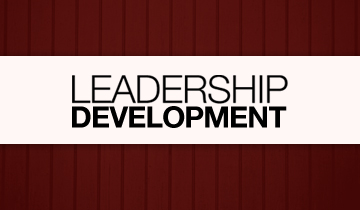Maturing into Effective Teambuilding
It has been said over and over again that there is “no ‘I’ in team”, but today I beg to differ a bit. Now, I understand the idea of selflessness and group cooperation that this cliché implies, but the truth is, every team is composed of at least two ‘I’s (‘I’ for individual). ‘I’s have to be formed and shaped into a ‘we’ for a team to function at its highest level. It doesn’t just happen.
Since the word team implies more than one participant, it typically comes with as many unique personalities, paradigms, and agendas as there are members; not to mention diverse skill sets, gift mixes and value systems. All these unique qualities can become strong forces pulling the team apart at the seams and causing great dysfunction in the group. People by nature tend to think about themselves first. They have to learn and mature to a point that they can consistently think beyond themselves. To be developed in this way requires them being coached toward community responsibility, accountability and ultimately effectiveness. Consequently the greatest challenge of any team is how to get the ‘I’s on the team to work as one unit, to even begin to think of themselves as one.
So, the secret to team success really begins at its lowest common denominator, the individual. Let’s focus on that level of team for a moment and look at three keys in individual development that can position the individual to work together with others toward greater team effectiveness. And perhaps through these three keys we can learn to become a better ‘we’ on the team we serve and begin to think as an ‘us’ instead of a constant ‘me’! Confused yet?
These keys are based on the transformation that comes from maturing from one level of competence to a higher level of competence.
1. We must mature from knowledge to understanding. The Scripture says in Proverbs 4:7, Wisdom [is] the principal thing; [therefore] get wisdom: and with all thy getting get understanding.
Knowledge is the lowest level of informational competence. The highest level is wisdom. Someone once said that, “wisdom is the ability to apply knowledge toward purposeful action.” I agree. Wisdom is the ability to process information and from it draw a rational conclusion that can be applied to the process of achievement. In this ‘wisdom’ I can see the larger purpose and how I fit into that purpose. Great teams are composed of individuals who not only possess knowledge, but also have the experience and frame of reference that produces an understanding of the purpose of the task and the value of the goal to the group.
2. We must mature from sharing information to communication. The root word for communicate is commune. It speaks of a sharing, a fellowship with others. Communication then, is the act of relating with others in such a way that a common understanding is achieved. In short, communication is understanding and being understood. Teams can fail to accomplish their objectives when they only share information but never achieve that powerful and mature level of relationship where information becomes communication. Time together, respect, and appreciation are keys to this critical transformational process. Most ‘I’s on the team can develop into a ‘we’ in an environment where there is a shared challenge to experience, a group vision or goal to achieve, a common dependence on each other, and a mutual benefit to enjoy. It is the coach’s job to see that these elements are present and experienced by all through healthy channels of communication.
3. We must mature from cooperation to collaboration. It is one thing to allow, it is totally a different thing to assist. At the cooperation level, the individual simply gets out of the way and does not resist the process of achieving the goal. At the higher collaborative level, the individual gets involved in the push and pull of the effort. We get buy-in and ownership from ‘I’s on the team. Now it is not merely your goal, it becomes my goal. Hence, it becomes our goal, a shared purpose. And together we succeed, as we are motivated to work as one. An appetite for personal opportunity and glory is transformed into a sense of responsibility to play my part in the victory of the whole.
In summary, to really see a team develop from individuals to a cohesive unit we must mature from the lowest level to the highest level in these three areas:
1. From Knowledge to Understanding
2. From Sharing Information to Communication
3. From Cooperation to Collaboration





